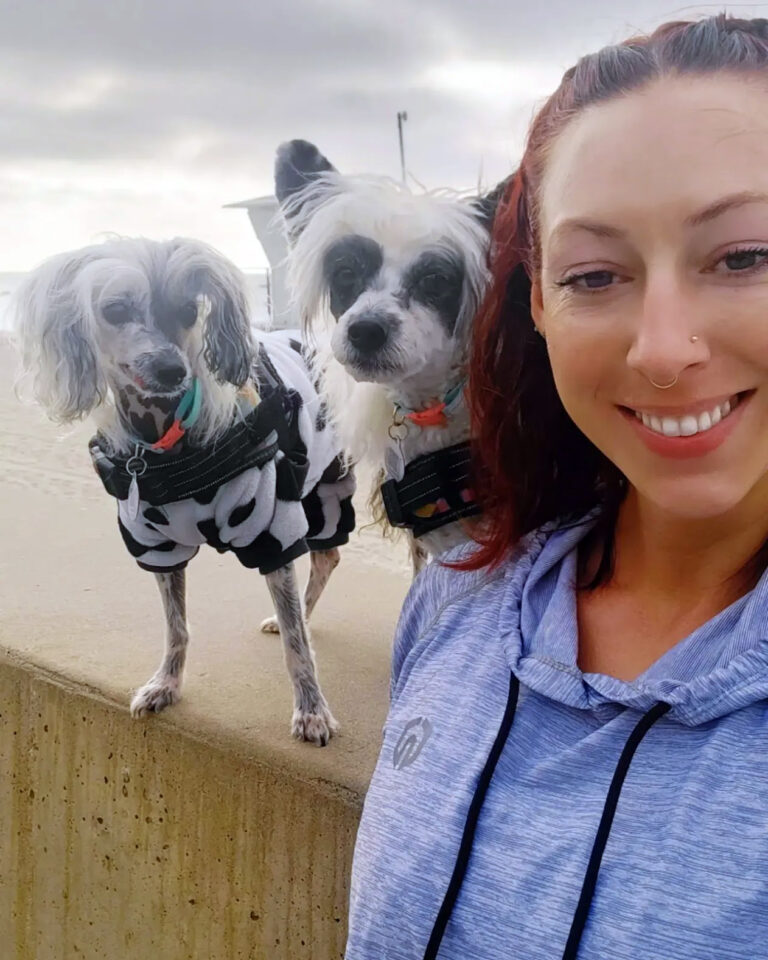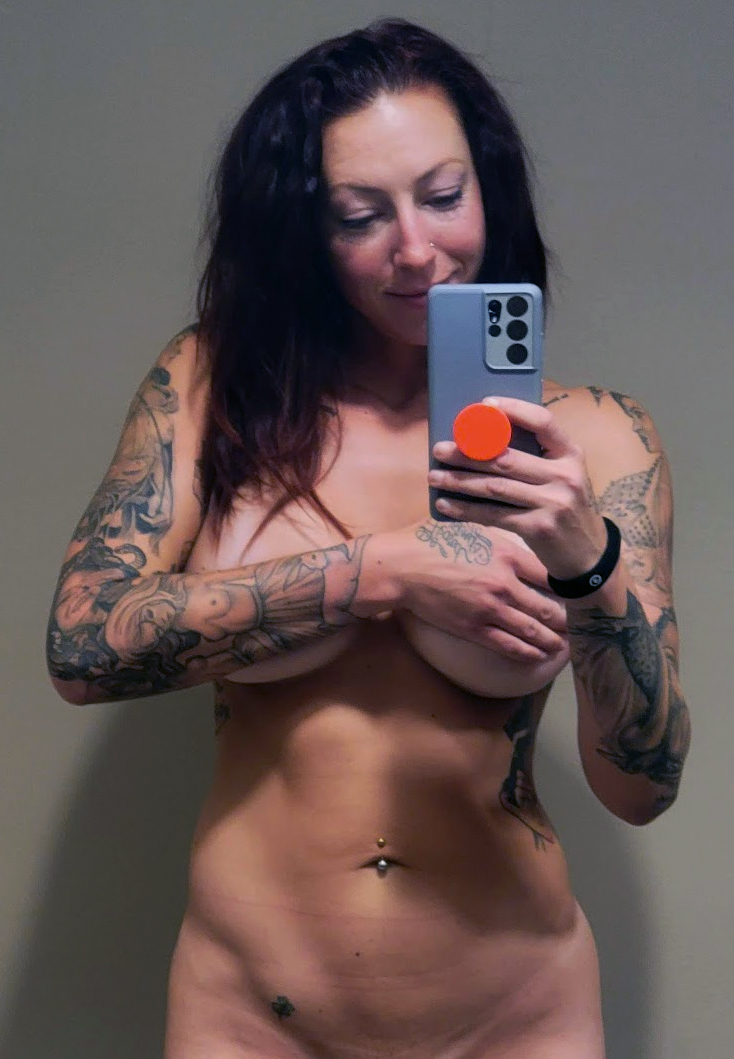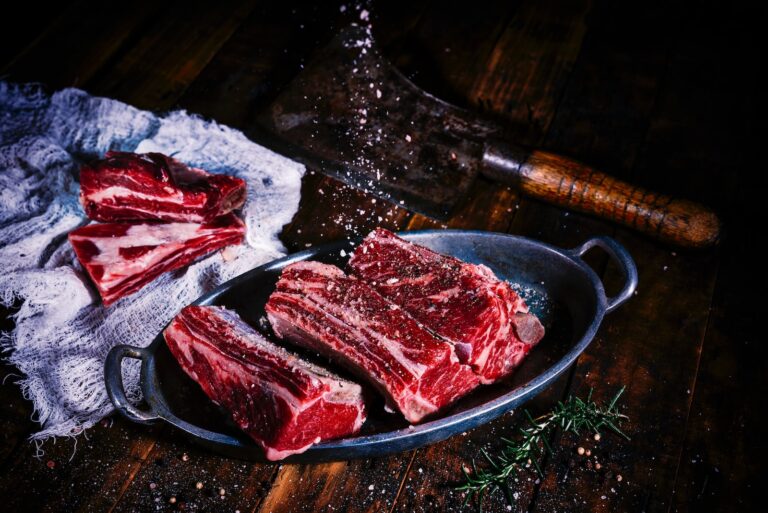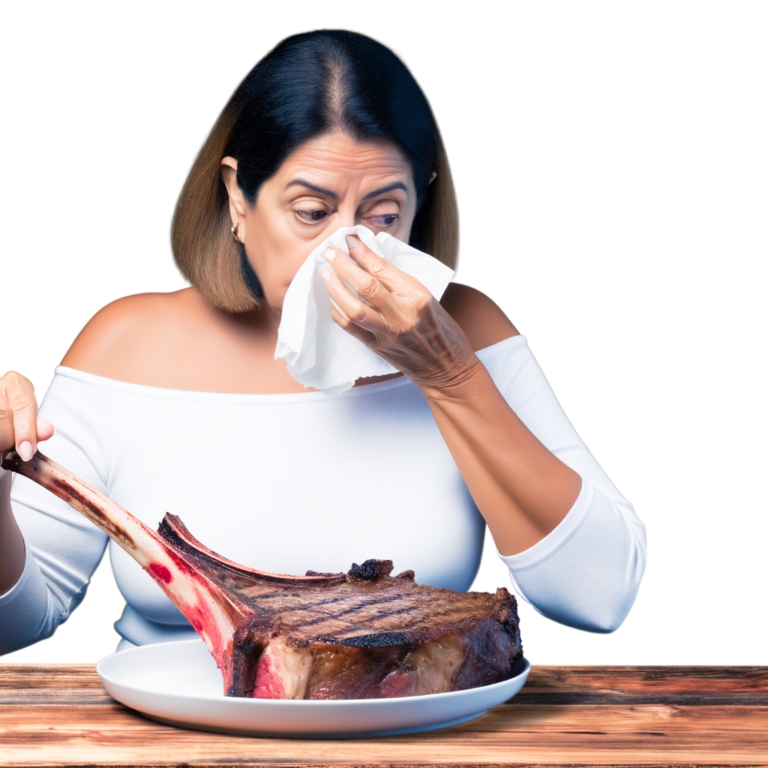Every time I tell someone that carnivore isn’t a weight loss diet I get a dozen people telling me how wrong I am. So let me explain.
Can you lose weight on the carnivore diet? Yes, absolutely.
Can the carnivore diet be used specifically to lose weight? Yes, also completely true.
Is the carnivore diet’s primary function that of causing weight loss? No, not at all.
Weight loss on the carnivore diet is a side effect, a cherry-on-top if you will.
But if you start the carnivore diet for the sole purpose of losing weight on your bathroom scale you will likely be disappointed in some way.
“Diet” Programming Is Flawed
You’ve probably tried a myriad of weight loss diets before trying carnivore. And they all have one thing in common, they use starvation to achieve their goal.
It’s not even the reduction in calories that is problematic with these approaches, it’s the nutritional starvation that comes with it.
When the typical non-carnivore diet is rich in calories but low in nutrients, it becomes unsustainable for a person to follow calorie-restriction long-term.
And anyone who has tried a calorie-restriction non-carnivore diet can attest to that fact when they experience the symptoms of nutritional starvation:
- Tired / Fatigued
- Irritable / Moody / Hangry
- Bored
- Cold
- Reduced Sex Drive
- Cravings / Food Obsession
- Periodic Binging / Cheat Meals
- Slowed Metabolism
Not surprising the same symptoms were reported by the men who participated in the Minnesota Starvation Experiment in 1944.
While emphasis on the reduction in calories has been the take-away from the Minnesota Starvation Experiment, those same participants were also being fed foods with very little nutritional value: potatoes, rutabagas, turnips, bread, and macaroni.
Most notably, the participants developed a fascination with food and suddenly were not interested in any other topic. They began collecting recipes and cookbooks and started strange rituals while eating such as cutting up their food into very small pieces and taking hours to eat their meals (Miller, 2016). Participant Harold Blickenstaff stated that “food became the one central and only thing really in one’s life. […] I mean, if you went to a movie, you weren’t particularly interested in the love scenes, but you noticed every time they ate and what they ate” (Kalm & Semba, 2005; 1349). Some subjects also became captivated by the mere sight of others eating, as stated by Marshall Sutton, one of the thirty-six participants, who took his girlfriend to a fancy restaurant “just to enjoy seeing her eat” (Ball, 2014). Some participants went as far as to steal food-related items (i.e. coffee cups) to satisfy their intense cravings (Miller, 2016).
Anna Julia Ferreira, The Minnesota Starvation Experiment – How it happened and what it taught us
Think about how central food culture is to the average person’s life? We have endless #foodporn on every social media platform, how many seasons of various cooking shows have you watched, and every holiday is about the food that will be served and not the spirit of the day.
When is the last time you engaged in a social event or personal engagement that wasn’t centered around food?
It took me less than a full year of strict carnivore to stop having casual thoughts about food. The only time I think about food is when I’m planning to go buy it to eat. The rest of my life is filled with other ideas and activities.
Obsession with food is not a personal failing, it’s a symptom of nutritional starvation. And you cannot solve starvation by further restricting.
Why The Carnivore Diet Is Sustainable
Have you ever been carnivore before in your life? Out of your entire life, how many years have animal-based foods NOT been the primary staple of your diet?
Now, imagine how many years you’ve been nutritionally deprived to some degree compared to the 6 month period the participants of the Minnesota Starvation Experiment were subjected to.
The degree of starvation will have differed to varying degrees, but for many it won’t have been by much.
How long have you calorie counted to be in a deficit and prioritized green salads, roots, starchy foods, and whole grains over fatty red meat, raw full-fat dairy, egg yolks, sardines, liver, and other nutrient-dense foods?
As a women I’ve grown up being told to eat lots of plants to stay thin, and avoid eating fat (especially animal fats!). And to calorie count, and calorie restrict, diet diet diet, over-exercise. So it would seem no surprise then that many of the gender-traits ascribed to women also align with nutritional starvation.
That it’s just normal to be irritable, hangry if you don’t eat every few hours, tired and reliant on coffee or energy drinks, cold((Maybe that’s why this study shows women are less tolerant of cold in the workplace.)), lower sex-drive then the average male counterpart, more likely to suffer from an eating disorder, and have a slower metabolism.
I just don’t buy that it’s a coincidence.
Now, shift to eating a nutrient dense diet like the carnivore diet which resolves the nutritional deficiencies and you’ll find over time that hunger signals go down (because the body is no longer starved) and associated starvation traits also resolve.
If you get to a place where you are no longer over-consuming calories in an effort to fulfill nutritional needs, fat-loss comes more easily. And, it’s sustainable in the long-term because you aren’t starving an already starved body.
Recovering From Starvation Takes Time
And now we get to the reason why I tell people carnivore is not a weight loss diet.
Because at first you are quite likely to gain scale weight if you are eating the amount needed to resolve long-standing nutritional deficiencies.
Even in the Minnesota Starvation Experiment it was observed that the participants needed to over-consume food at first to have the best chance of quickly recovering.
Those participants returning to a typical “healthy” diet at the time was far from being as nutrient-dense as the carnivore diet is, and many reported they still had food obsession several years later. Do you really want to be struggling with food obsession, cravings, etc for years after starting the carnivore diet?
Or would you rather get through all of that within 6 months and be done with it forever.
Imagine how much time and freedom you can experience when food is no longer controlling your life. Honestly, you probably cannot imagine it, I know I thought it was all bullshit until I experienced it first-hand.
I’m 21 hours into my second 48-hour fast and I have no appetite; I don’t expect I will for the duration of this planned fast or even longer if I wished to extend it.
This is normal and common for me since adopting the carnivore diet and many others will testify to the same side-effect since adapting to carnivore.
But, this isn’t who I used to be. I was always hungry, even if I was physically so full that I couldn’t move my body or breath. I could not be satiated.
I still remember the first time I met someone who could eat just one bite of a cookie and decide they didn’t actually want to eat the whole thing; I was in awe that such a person existed. And also angry because why couldn’t I find the same disinterest? Instead, if there was food in front of me I was going to either eat it or agonize about how badly I wanted to eat it until I caved and ate something.
But this benefit comes by addressing nutritional deficiences first.
If you approach the carnivore diet like every other weight loss diet by prioritizing fat loss via calorie restriction it will give you the same un-sustainable results.
Let’s Talk About Adapting To Carnivore
When I first started learning about the carnivore diet it was well known there is an adaptation period, during which gaining scale weight is normal and you should not restrict the amount you eat. Just eat when hungry, and stop when satiated.
For me, that resulted in eating 5-6 pounds (yes, pounds!) of meat a day for the first 6 months((I had a lot of nutritional deficiencies to address. I have a long history of eating vegetarian and vegan, and during the times I was neither I still minimized the amount of animal foods I ate.)).
I gained 15 pounds of scale weight.
And, I dropped 4 clothing sizes at the same time.
The carnivore diet is about healing nutritional deficiencies; the by-product of becoming healthier is also fat-loss when there is an excess. Prioritizing fat-loss first can result in continued nutritional deficiency which caused the problem in the first place.
The Scale Is Not Your Friend
Scales are useful for all kinds of things but mostly just knowing total mass of an object.
What we forget is that fat is not the only variable controlling the number on that scale.
It can be normal for the scale to go up or down by as much as 5 pounds in a single day depending on how hydrated we are, what we’ve eaten, whether we had our morning bowel movement or not, and even medications.
When you start eating a nutritionally dense diet after being starved, it’s normal for your body to increase muscle mass without stepping foot in the gym.
It’s also possible to lose fat and gain muscle at the same time when you start the carnivore diet. This is known as body recomposition, and can result in a higher number on the scale even as you are accomplishing your goal of fat loss.
Because of how frustratingly inaccurate scales are for showing your actual body composition and progress, throw it out completely((If you’ve convinced yourself you really do need to keep tabs on your weight, commit to something like Hydrostatic, BOD POD, or DEXA testing; for health risk concerns DEXA is the most appropriate.)). Don’t keep one at home, and don’t use one when you’re out and about at the gym, doctor’s office, or some random scale in a public restroom.
Determine your initial progress by how you feel physically, mentally, emotionally, and how your clothes fit.
How Can You Lose Fat With The Carnivore Diet?
1. Do this for the first 3-6 months:
- Eat only animal-based foods((Avoid processed meat products which will likely contain spices, flavoring, fillers, and preservatives that negatively impact health.)), strictly.
- Are you hungry? Eat. Are you satiated? Don’t eat.
- Don’t let yourself sit hungry between established mealtimes.
- Drink water with electrolytes((Potassium, Magnesium, Sodium)) as needed((To prevent or stop “keto flu” which can show up as headaches, nausea, muscle cramping, fatigue, etc.)).
Once you’re adapted you should notice that your appetite naturally declines without effort. The more nutritionally sound the body is the longer it will remain comfortable without food and stop sending out hunger signals((The body is actually very smart!)).
If you skip adaptation you should expect to continue feeling hungry, have cravings for food, and generally struggle to stick to the carnivore diet just like traditional deprivation diets.
2. Hydrate
You know that long-standing recommendation to drink a glass of water before a meal to help you feel fuller faster?
Yeah, don’t drink a glass of water before your carnivore meal((You don’t want to dilute the stomach acid! Avoid drinking water right before, during, or after meals until the food has passed through your stomach to optimize digestion. You want the stomach to be as acidic as possible.)).
However, there are times when the body is dehydrated and we mistake it for hunger. You can feel tired and fatigued, irritable, cold, etc when you are in need of electrolytes.
Particularly in the beginning, learning to stay hydrated can be a challenge when you stop eating carbohydrates.
You can make your own electrolytes or use a pre-mix. For carnivore diet specifically, I recommend these pre-mix options:
- Flavored: Ultima Electrolyte Powder
- Unflavored: ReMag & ReMyte
I do not recommend brands like KetoChow or LMNT, they make for very expensive salt water((Let’s prioritize potassium and magnesium in a supplement if we’re going to spend the money. It’s very cheap and easy to increase sodium by salting your food if needed.)).
Drinking a lot of plain water can dilute your electrolytes and cause hydration issues, so pay close attention to whether you feel better or worse drinking plain water or electrolyte water. Eventually you’ll become aware of what it is your body needs based on this conscious feedback.
3. Use Ketosis
While it’s often mistaken that the carnivore diet is a ketogenic diet, that is not a given. It’s not even common for long-term carnivores to sustain nutritional ketosis.
However, you can pair ketosis with the carnivore diet to leverage its benefit in fat-loss.
If you’re new to ketosis, this beginner’s keto guide is a helpful place to start.
Don’t waste your time using urine ketone test strips, you can find blood ketone meter kits for roughly the same price, like this ketone meter kit for $20.
If you’re already familiar with keto but struggling to reach or maintain nutritional ketosis on the carnivore diet you may need to limit your total protein intake to no more than 1 gram per pound of lean body mass((Use this calculator to find your number.)).
4. Exclude Dairy
Dairy is an animal-product so is part of the carnivore diet for many people. However, it can also be a primary reason for individuals to gain fat or prevent them from losing fat.
If you’re eating any dairy products and not seeing the fat-loss on carnivore diet that you expect it’s worth cutting out all dairy to see if that helps.
5. Lift Weights
If you’re already active in the gym doing cardio, stop it and fixate on lifting weights instead.
If you aren’t already active in the gym, consider incorporating some weight lifting into your life((You don’t have to become an Olympic lifter overnight, some is better than none.)).
Not only does resistance training do good things for your overall health like increasing bone density, it also increases your base metabolic rate making it easier to burn fat while at rest((All other things being equal.)).
You can start with something like a 3 day/week 5×5 program.
I use the Hevy app to track my workouts and they have a 5×5 schedule pre-programmed you can follow for free.
6. (BONUS) Use Intermittent Fasting
I put this one last for a specific reason.
I don’t believe that fasting should be the first approach you take to leverage increased fat loss on the carnivore diet.
Yes, fasting can be great for all kinds of reasons((Like autophagy, which is also a fun word to say.)). However, it can be easy to end up in a nutritional deficiency again if you incorporate it too early on or rely on it too heavily.
I am not completely against fasting (as I mentioned, at the time of writing this I’m in the middle of a 2-day fast – for autophagy specifically) but like anything it’s a tool and should be used for the right reasons.
Some people choose to adopt an OMAD (one meal a day) eating schedule with the carnivore diet. Or various lengths of intermittent and extended fasting.
We are all guinea pigs, so what works best for one person might not be the right choice for you. If you want to explore fasting I encourage you to do some research before jumping in and try out different formats to see what makes you feel best.
As a side benefit, fasting schedules can help you reach and sustain nutritional ketosis as well. ?
Measuring Progress in Years
Finally, it can be very tempting to micro-manage our progress. It pairs well with the food obsession that also takes time to recover from.
But anyone who has lost a large amount of fat, and maintained it, can tell you that progress is not linear.
You will lose, and you will gain.
It’s not the short-term results that matter, it’s what happens over the long term.
Are you better in 6 months or 2 years than you were after 3 weeks? Great! ? ?






